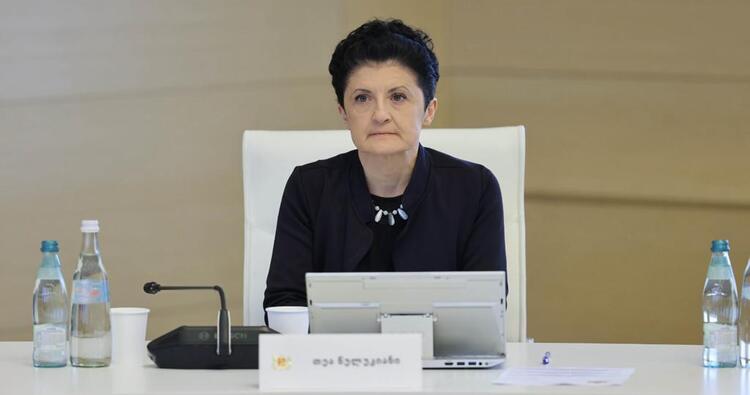Georgian Vice PM says suspension of visa liberalisation between Georgia, EU “improbable, impossible”

In her remarks, Tsulukiani alleged the purpose of authors of the resolution including the entry in the text was to “punish” Georgia. Photo: Government Administration
Tea Tsulukiani, the Georgian Vice Prime Minister and Minister of Culture, on Thursday said suspension of visa liberalisation between Georgia and the European Union was “improbable and impossible” due to the procedural issues.
Tsulukiani’s comments followed a resolution adopted by the European Parliament against the Georgian bill on transparency of foreign influence on Thursday, with the document calling on the European Commission to assess the impact of the bill on the country’s continuous fulfilment of benchmarks of the visa agreement, in particular the marker on fundamental rights - a crucial component of the visa policy.
In her remarks, Tsulukiani alleged the purpose of authors of the resolution including the entry in the text was to “punish” Georgia.
[This is] [j]ust like punishment was the purpose when Moldova and Ukraine were granted [the EU membership] candidate status and Georgia was not [in 2022] - it was a punitive measure for something we didn't do. I mean the opening of a second front”, she claimed in reference to criticism of the Georgian Government’s policies in relation to the war between Russia and Ukraine.
“This is another attempt to punish us for behaviour they consider inappropriate. However, it would not be inappropriate for you to want not to lose your identity, not to erase your national memory and not to break the triad on which our nation is based. These are homeland, language, religion”, the Vice PM said.
Tsulukiani stressed the authors of the resolution were “not entitled” to making a decision on suspension or cancelling of the visa-free travel.
She further claimed “we once again see how many MEPs in the European Parliament, which is known for making decisions in exchange for money and taking certain positions in exchange for money” were “trying to punish the Georgian nation once again”.
The domestic bill calls for the registration of non-commercial legal entities and media outlets in the country as “pursuing the interests of a foreign power” if they derive more than 20 percent of their funding from abroad, and has been met by criticism by some of Georgia’s foreign partners.
It has passed the first of its hearings at the Parliament, with further readings to follow before its potential adoption.
 Tweet
Tweet  Share
Share